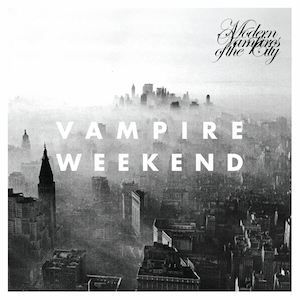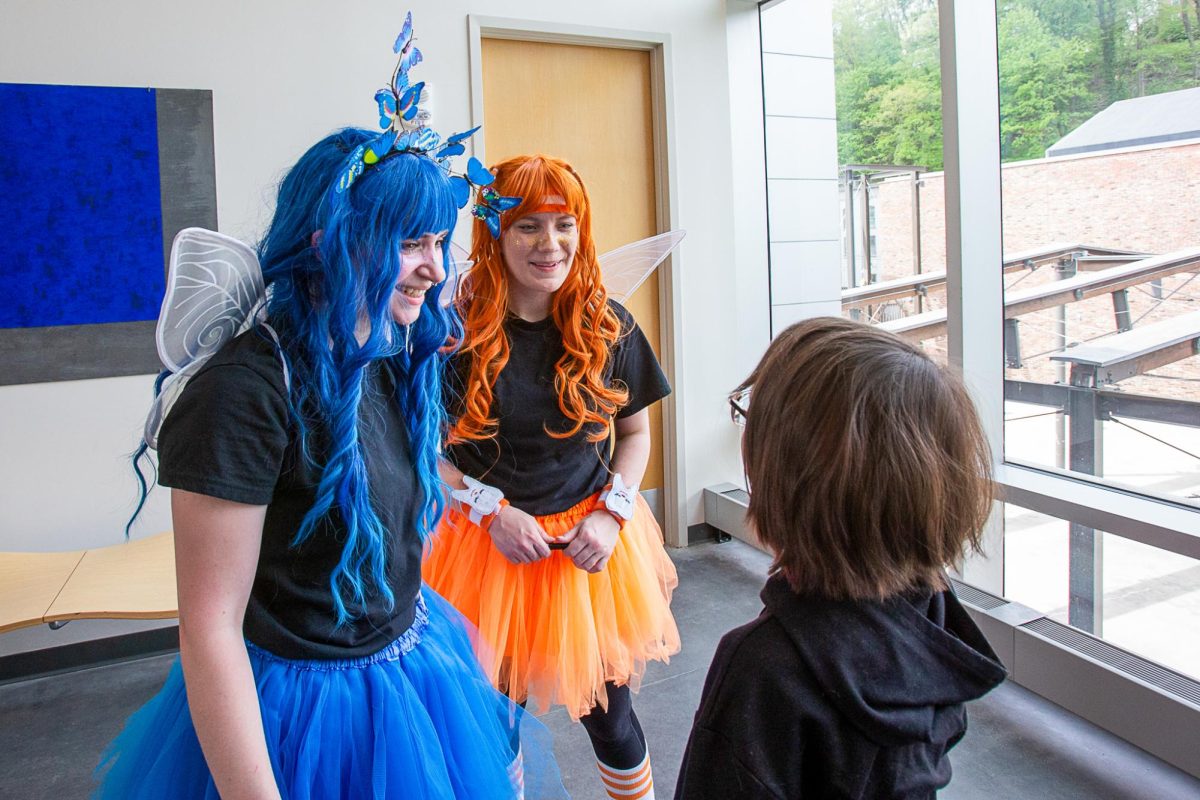
Albums throughout the 2010s were lauded for their honesty and ability to place their finger on the cultural zeitgeist. “To Pimp a Butterfly” by Kendrick Lamar is celebrated for its commentary on the Black experience in America. “The Suburbs” by Arcade Fire won a Grammy for its dissection of being an individual in a world ruled by conformity.
In that same vein, celebrating its 10-year anniversary, Vampire Weekend’s third studio album “Modern Vampires of the City” explores the idea of trying to find faith in the face of religious existentialism in our modernizing world.
Everything on this album is done with purpose. Producer Rostam Batmanglij echoes the sounds of clocks ticking and ecclesiastical organs throughout, while singer and songwriter Ezra Koenig uses profound yet simple lyrics as he searches for an explanation in a life lived without a belief in a higher power.
These simple, subtle lyrics are immediately visible in the first three tracks. “Obvious Bicycle,” “Unbelievers” and “Step” address the tension between religious faith and doubt in a secular world. They express the idea that belief in God and religious dogma are at odds with the reality of the modern, rational world.
Then, the organ sounds are replaced with saxophones for a punk rock-sounding “Diane Young” but quickly return with “Don’t Lie.” In both, Koenig utilizes motifs of the unnecessary death of the innocent to express the meaninglessness of putting faith in an all-knowing God. He reckons with this concept most plainly in the chorus of “Don’t Lie” saying “Don’t Lie, I want him to know/God’s loves die young, is he ready to go.”
As the next song “Hannah Hunt” begins, sounds of chatter, organs and clocks fade away and all we hear is Koenig and a piano. It’s a beautiful piece of music detailing the story of a failed relationship capped off by him belting out, “If I can’t trust you then damn it Hannah/There’s no future/There’s no answer/Though we live on the U.S. dollar/You and me we got our own sense of time.” Koenig uses this song and relationship to represent the irrationality of believing in something that is not visible, despite all the pain it inflicts.
Then the album shifts back to its central message with “Everlasting Arms,” “Worship You” and “Finger Back,” which allude to atrocities and division caused in the name of the Lord with Koenig wondering how he could be made to serve a master — a “merciful” God who allowed for such destruction.
The climax of the album is attained with “Ya Hey” as Koenig reaches a fever pitch in his inability to believe. This doubt has expanded, no longer limited to religious beliefs but to a broader existential question about the meaning of life and the challenges of navigating the complexities of the modern world as he says, “Through the fire and through the flames/You won’t even say your name/Only I am what I am.”
The album closes with “Hudson,” which is a gritty tale of the origins of Manhattan. It is a reflection on mortality, the passage of time and the impermanence of life. Its introspective lyrics and melancholic musical arrangement serve as a fitting conclusion to an album that explores themes of faith, identity and the human condition in the contemporary world.
Ultimately, “Modern Vampires of the City,” with its intricate lyrics, diverse musical influences and thematic depth offers a thought-provoking and emotionally resonant listening experience.























































































































